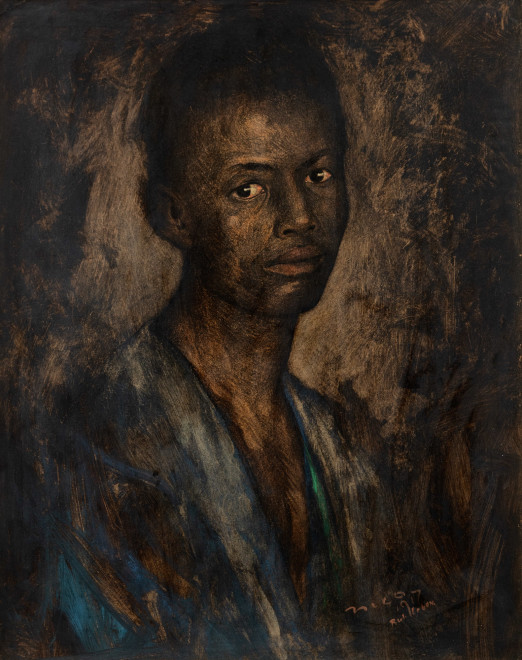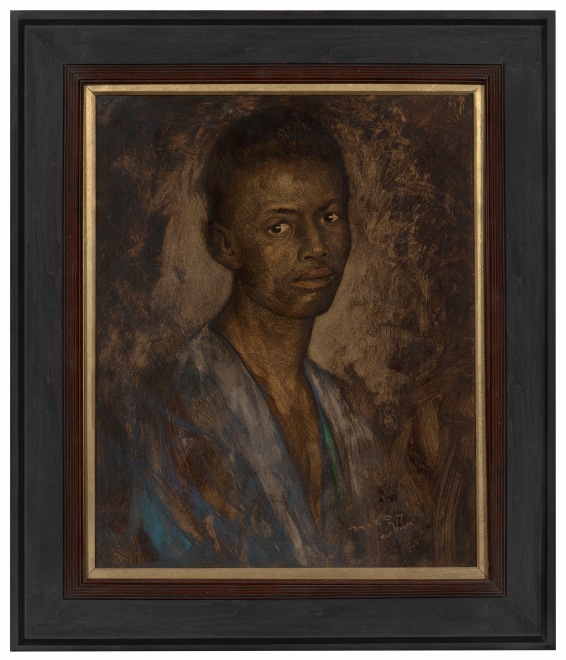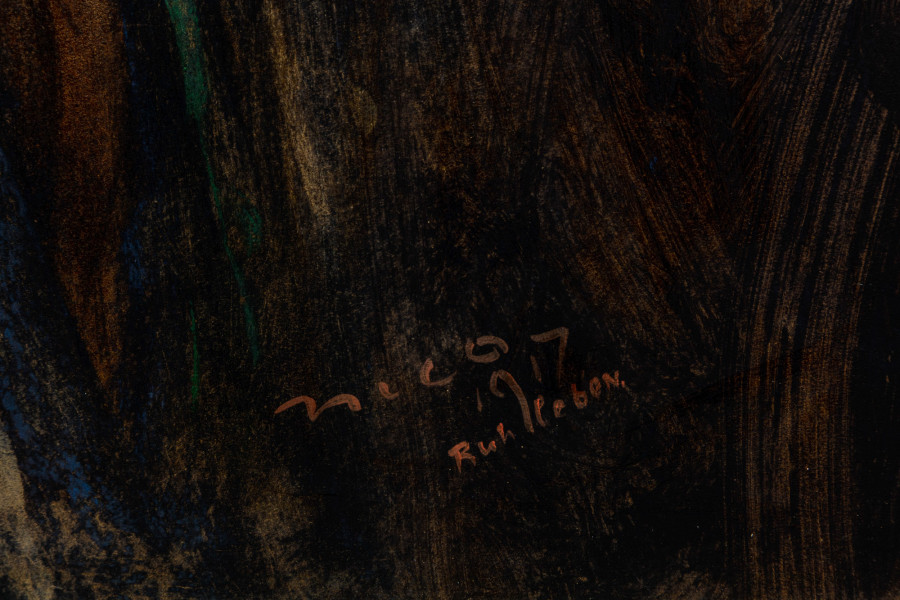During The Great War, Jungmann was interned in the Ruhleben civilian detention camp in Germany and based on its inscription, which reads “NICO 1917, Ruhleben” this is where our study was painted.
Provenance
Private collection, New York
Catalogue note
Nico Jungmann was a Dutch artist who settled in London in 1893 and eventually became a naturalized British citizen. He was primarily known as an illustrator of travel and topographical books on Holland (1904), Norway (1905) and Normandy, France (1905). Each travelogue included carefully observed representations of the people from each region, focusing on their specific characteristics and customs. Jungmann’s best illustrations often resembled the style of the Swedish painter Carl Larsson; for example, The Rosary in Gallery 19C’s inventory. His interest in showing “types” continued well into his career but his illustrative style was replaced by a more naturalistic rendering of his subjects. During The Great War, he was interned in the Ruhleben civilian detention camp in Germany and based on its inscription, which reads “NICO 1917, Ruhleben” this is where our study was painted.
The Ruhleben Internment Camp was located two miles west of Berlin on the grounds of a former racetrack. The outbreak of WWI happened so suddenly that thousands of Allied civilians who had been living, studying or traveling in Germany were left stranded and in November 1914, the German authorities rounded them up and placed them in Ruhleben. The detainees also included the crews of several merchant ships trapped in the harbors at Bremen and Hamburg, as well as a South African warship that had been touring Germany. Ruhleben operated between November 1914 and November 1918; initially, the living arrangements at the Camp were harsh but gradually conditions improved, and Ruhleben essentially became a self-governing community. The “Ruhlebenites” as they became known created their own cultural and sports entertainment, which included drama, pantomime and musical performances, cricket, golf, tennis, football competitions and boxing matches. They even published their own magazine; the cover of the 1916 Christmas edition featured the holiday greeting “To Everyman, We wish the compliments of the Season.” The camp was diverse in talent and many of the detainees were writers, musicians, actors and artists. When Nico Jungmann arrived at Ruhleben in 1916 (he had travelled to Holland and been taken captive on his return to England), “improvements had been made and the organization was truly wonderful.” (Nico Jungmann, “My Life at Ruhleben” in The International Studio, 1918, vol 64, p. 93). Upon his arrival, he was provided with a room located under the grandstand where he could set to work and there, he painted continuously during the next sixteen months of his internment. While it does not seem Jungmann was ever designated the official artist at Ruhleben, the series of paintings that he produced provided a visual record of what life was like at the camp. He painted a large panoramic view seen from a tower at the top of the grandstand. Other more anecdotal subjects depicted scenes of detainees standing in a breadline, another showed them lining up for their bacon ration at Christmas dinner. There was a scene of a boxing match called “Slaves of the Ring” and a gala performance of The Mikado. All these works are now in the collection of Britain’s Imperial War Museums (IWM). Jungmann also painted a portrait of Mr. Powell, the British Captain at Ruhleben.
The depiction of regional “types” had been a prevailing theme in Jungmann’s travelogues in the early 1900s, and clearly this interest continued at Ruhleben as shown in his powerful study of an African man, perhaps a crew member from the South African warship that had the misfortune of touring Germany during the outbreak of the War. Here, he depicts his sitter in a predominantly dark palette, a bold and daring idea of showing brown against brown. The only variations in color appear in the redness of his model’s eyes and lips while quick slashes of vivid green and blue brushwork define his clothing.






